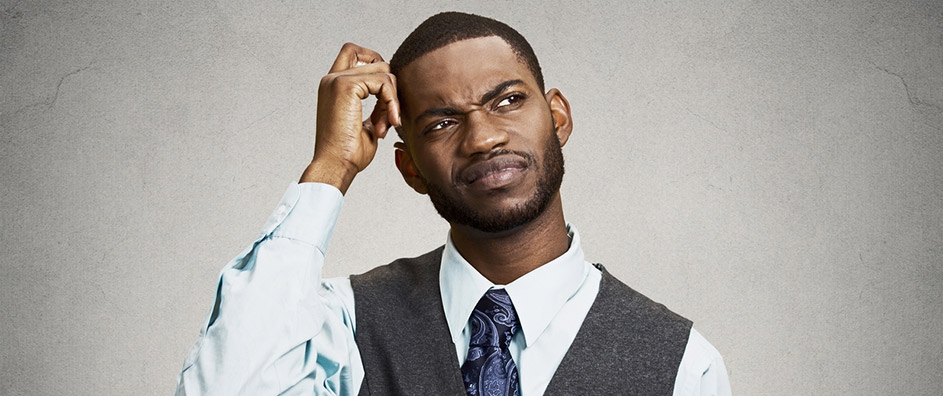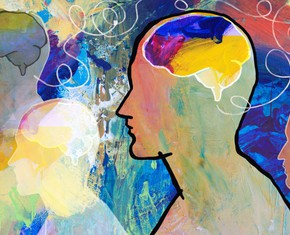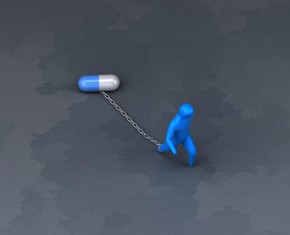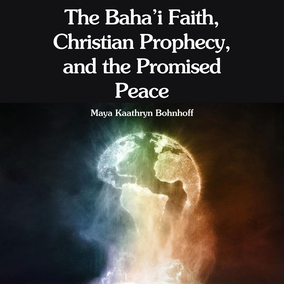The views expressed in our content reflect individual perspectives and do not represent the authoritative views of the Baha'i Faith.
When you come across a new piece of information, how do you process and analyze it? How do you know whether it’s true or false?
Determining what’s true and what’s false is one of the most important tasks any human being faces. Our truth-determination skills, made up of many different parts of our consciousness, can even direct the course of our lives. People who do a good job at determining the truth are often happier, better adjusted, and more successful—so let’s take a look at the tools people use to evaluate the truth.
Many utilize their immediate instincts, and quickly respond to a new piece of information by reflexively and even immediately saying “Well, yes, that seems true to me,” or “No, I don’t think that’s true.” In other words, they judge quickly using their initial instincts, feelings or inner wishes, without considering much actual information or marshalling the facts.
When instincts don’t suffice, people often fall back on custom, consensus or tradition. “Sure, I believe that,” they might say, “because it’s what my family or my society believes.” Consensus or popularity can form another truth criteria—“The majority of people believe that way, so I do too.”
Thinking people, though, use their rational minds to determine the truth: “I’ve thoroughly examined that premise, and I think it’s true,” or “When I gave it some thought and did some research, I realized I didn’t believe it.”
Which of these approaches works best, in your view? Obviously, thoughtful consideration of new information always works better than a knee-jerk, instinctual reaction or following the crowd. The Baha’i teachings urge us all to thoughtfully and rationally examine the facts before we decide what’s true:
Let us examine the facts as they are, investigate the truth and reality in order to arrive at a true opinion and conclusion. – Abdu’l-Baha, The Promulgation of Universal Peace, p. 408.
Let’s try this quick experiment—pick one of the answers to this question: On 9/11/2001, the World Trade Center towers in New York City were destroyed by:
- al Qaeda terrorists who flew planes into the buildings.
- the American government, with bombs planted inside the buildings and missiles disguised as airliners.
Now, no matter which answer you chose, think about whether or not the general public agrees with your opinion. With either answer #1 or answer #2, what percentage of people do you think would agree? OK, got it? You might want to write down your theoretical percentages, and then compare them with this actual research:
In 2008, WorldPublicOpinion.org—a collaborative project of research centers in various countries managed by the Program on International Policy Attitudes at the University of Maryland—asked questions about the responsibility for the 9/11 attacks to 16,000 people in 17 countries outside the United States. Despite the fact that millions saw photographs, videotapes and live footage of the planes flying into the Twin Towers, some conspiracy theories have suggested other causes.
Here’s what the survey found, and the findings may surprise you: Forty-six percent (46%) of the people polled said al-Qaeda was responsible—not even a majority. Fifteen percent (15%) said the U.S. government was responsible, while seven percent (7%) said Israel and another seven percent (7%) said some other perpetrator. Twenty-five percent (25%) of the survey respondents said they didn’t know who carried out the attacks. Polls conducted within the United States itself revealed similar percentages.
How close were you in your estimates? Most people, regardless of which answer they preferred—the conventional wisdom or the conspiracy theory—often overestimate the percentage of people who agree with them, and underestimate the percentage who disagree. That’s called cognitive bias, which means that we all tend to think our own opinions are more widely-held than they actually are.
Once you know about cognitive bias, you may realize that people create their own subjective reality from their perceptions—and that their perceptions don’t always reflect the facts or the truth of the situation. If you allow yourself to have cognitive bias, it can distort the lens you see the world through, leading to poor perceptions, irrational expectations or even major lapses in judgment. Cognitive bias can have a devastating impact on the lives of those blinded by its effects.
The Baha’i teachings clearly say that the best way to avoid such bias and prejudice is the independent investigation of the truth:
God has bestowed the gift of mind upon man in order that he may weigh every fact or truth presented to him and adjudge whether it be reasonable. That which conforms to his reason he may accept as true, while that which reason and science cannot sanction may be discarded as imagination and superstition, as a phantom and not reality. – Abdu’l-Baha, The Promulgation of Universal Peace, p. 374.
Each of us, regardless of our age, our intelligence, our social status, or our educational level, has a duty to investigate the information in our world and determine whether we believe it to be true or false. If we fail in that duty, and just unthinkingly go along with the traditions and customs of our culture, we run the risk of accepting and internalizing misleading and false beliefs.
















Comments
Sign in or create an account
Continue with Googleor